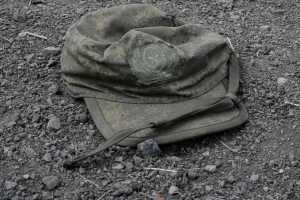
Borrell explains how EU will respond to Russia's threats to fire on grain ships
The EU's chief diplomat Josep Borrell said that the only response of the European Union to Russia's threats to fire on Ukrainian grain ships can only be an increase in military aid to Ukraine
This is stated on the EU website.
He stressed the need to provide exactly the support Ukraine needs.
"The Ministers will have to discuss how to proceed, but there is only one solution: to increase the military support to Ukraine. If they are being bombed, we have to provide anti-aerial capacities. If the Russians are using drones, we have to provide Ukrainians with anti-aerial capacities to destroy these drones. But the massive attacks of these last three nights require an answer from our side, the answer can only be one, apart from rhetoric – providing more military resources," Borrell said.
The head of European diplomacy said that he was going to present a proposal to increase support for Ukraine through the European Peace Fund. The official did not specify the amount of support.
He stressed that the situation in the port of Odesa is complicated and atypical.
"What is happening in Ukraine, in the port of Odesa, it is a very grave situation. [It is] something new, because even until now, at least the grain was exported but not destroyed," Borrell said.
He noted that the fact that Russia considers any ship to be a warship is a step further to prevent grain exports from Ukraine. Borrell emphasises that this will have consequences both in Ukraine and around the world.
"It has two consequences: first, for Ukraine itself – depriving them of the resources – and secondly, for the rest of the world, who is being deprived of a critical – this is a critical raw material," the diplomat explained.
Russia's termination of the grain deal
On 16 July, the last ship loaded with Ukrainian agricultural products under the initiative left the port of Odesa. On 17 July, Russia announced the termination of the grain deal. In response, Volodymyr Zelenskyy said that it was necessary to continue using the grain corridor even despite Russia's withdrawal from the agreement. And Kuleba began urgent consultations at the UN.
The White House condemned Russia's withdrawal from the grain deal, which played a crucial role in reducing global food prices.
On 18 July, Russian presidential spokesman Dmitry Peskov said there were "certain risks" for parties trying to resume the Black Sea Grain Initiative without Russia's participation.
European Commission President Ursula von der Leyen said that it was critical to restore transport links across the Black Sea to provide food to the world's most vulnerable countries and to preserve the ability to export Ukrainian goods.
On 19 July, it was reported that Ukraine was considering transporting food as part of the grain initiative through the territorial waters of Bulgaria and neighbouring Romania.
At the same time, the Russian Ministry of Defence issued a statement threatening ships heading to Ukraine's Black Sea ports. On the same day, Putin named the conditions for Russia's return to the grain deal and demanded their immediate implementation
- News














































